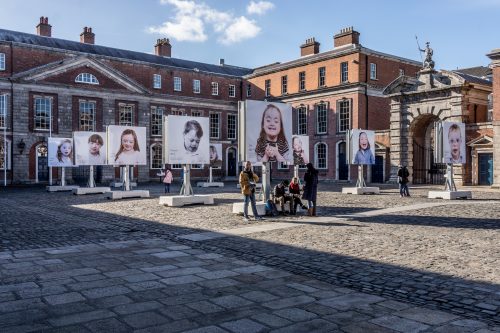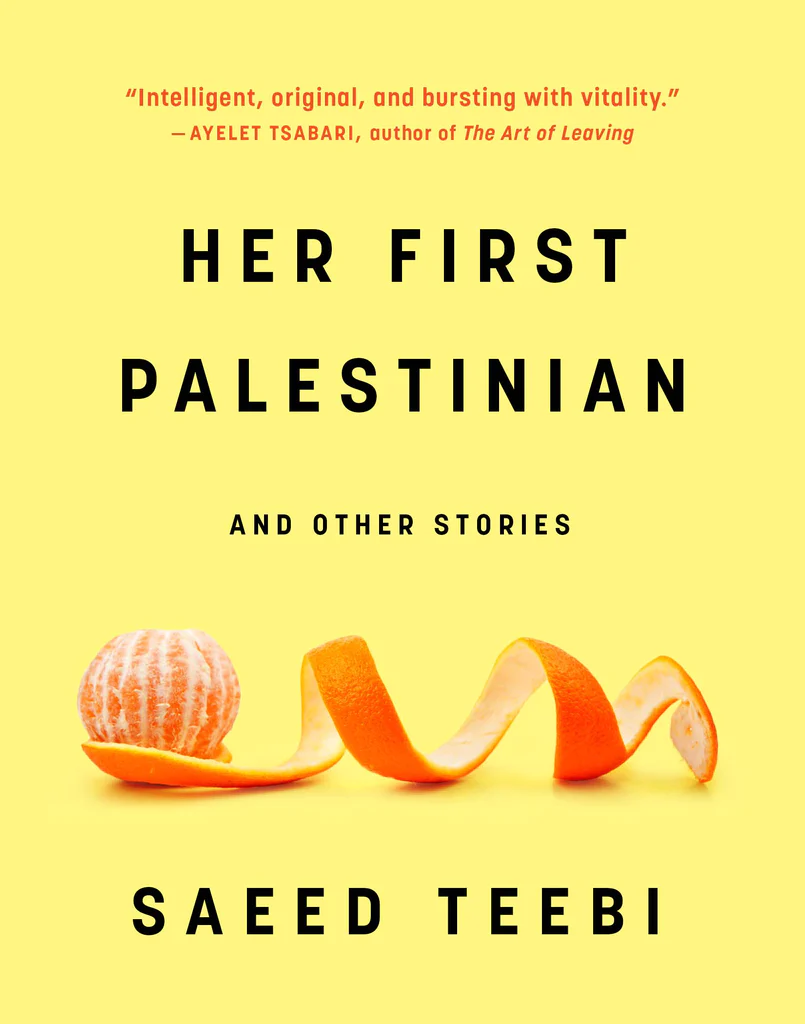
Title: World Down Syndrome Day 2015- Here I Am Photo Exhibition Upper Courtyard Dublin Castle REF-102700 Credit: William Murphy. Uploaded from Flickr and used under Creative Commons – Attribution, ShareAlike.
“At your age, you should consider screening,” the obstetrician said. She gave me an earnest look from behind her desk.
Six months later you were placed on my chest: raven black hair, covered in blood and softly screaming. My reward for months of nausea, swollen feet and an intriguing stretch mark pattern that I knew would permanently embellish my abdomen.
Maybe this is why people feel the urge to climb Mount Everest, sail solo across the oceans or walk to the North Pole: to experience this overwhelming feeling of accomplishment and to be part of an incredible miracle. But just as I was starting to feel invincible, a nurse in scrubs snatched you away. Your heartbeat had dropped dangerously during labour.
A few days later the doctor told me why: “Your baby has Down syndrome.” I felt a crack starting at my head, continuing down my spine to both my legs. Fear was oozing out of me uncontrollably, like the slimy contents of an egg that had been dropped. There were no congratulations. A social worker quickly whisked me away to another room. When I shared the news with family and friends, there was mostly silence interrupted by tears.
They transferred you to intensive care and started to test you for all the conditions that could, or could not, be the result of Down syndrome. In the following storm of tests, surgery, buzzing sounds, red flickering lights, and nurses and doctors scurrying the hallways, I barely kept afloat.
But when the lights dimmed in the evenings, the visitors and the day nurses went home and a reasonable peace settled over the intensive care ward, I would sit down in the rocking chair next to your crib. I’d gently take you out, careful not to tangle up the hoses and wires attached to your tiny body, and hold you. You felt like a little bird pushing against my chest. Together we would rock back and forth until the waves carried us far away from this hospital. Away from tests and doctors and residents looking in charts, poking needles in you and whispering, from hand-scrubbing and the need to don a protective apron every time I entered your room. Away from staring at the container beneath your bed and wishing that the greenish bile continuously filling the bottle would finally stop.
One day, in the eye of the storm, an angel walked into the hospital. Without any hesitation or pity, she admired you and congratulated me. “Your baby has beautiful eyes,” she said. I wondered if she realized you had Down syndrome. She threw me a lifeline that I eagerly grabbed: “early intervention.”
The angel that walked into our lives was named Patty. She showed me how I could encourage your development. Every waking moment became a learning opportunity where I was waving little black and white toys in front of your face to stimulate you to move your head. I played Mozart and Orff and laid you face down on the floor, placing your toy just out of reach. You patiently endured my efforts to be a good extra-needs mom. You even encouraged me with your beautiful bright smiles.
In summer, we let ladybugs crawl on our arms to stimulate your senses. In autumn, we lay down on a mossy forest floor to watch thousands of leaves swirl above our heads. In winter, we made angels in the snow. While the sun warmed our faces and the snow melted in our collars, I remembered how fearful I had been to raise a child with extra needs. But in fact, parenting you came so easily and naturally. I loved living life in “the slow lane.”
I met other families with Down syndrome. Their children were not at all like the children I had seen in my nightmares that kept me awake during those first few nights as a new mom. They climbed the play structures, laughed with their friends and came over to cuddle you. The ghost of Down syndrome disappeared from my life.
Eighteen months after becoming your mom, I was in the hospital again. I was pregnant. Because you were born with Down syndrome, they said I had a higher risk of carrying a second child with a genetic difference. I was sent to a special clinic for “high-risk women” located on the sixth floor. The waiting room wasn’t crowded with moms excitedly chatting about their pregnancies while their kids ran up and down the hallways. This waiting room was nearly empty and quiet. Even the nurses whispered.
This morning, there was only one woman waiting. She studied the purse she was clutching in her hands. Next to her sat her husband or boyfriend, gazing at a grey sky outside. When we walked in they nodded, but they didn’t really look at us.
I sat down while you enthusiastically crawled towards a brightly coloured plastic crate that was placed on the polished floor. It was filled with rickety toys. You picked your favourite toy: a model Thomas train. I had seen this train before in our playgroup. When the button on top is pushed, it starts moving. Not this train. This train was broken. There was a hole where the button should have been.
The woman across the room stopped fidgeting with her purse, looked at me and asked: “Do you know what you’re having?” “A girl,” I replied. “Do you know?” “Not yet,” she said. She looked down and started fidgeting with her purse again.
Train in one hand, the other placed flat on the floor, you slid on your bum towards the coffee table.
Out of the blue the woman blurted: “I’m here for an amnio. My test results placed me at a risk of 1 in 7 for having a baby with Down syndrome.’”
“Oh well,” I replied, “Either way, I am sure you’ll have a wonderful baby.”
“Oh no, I couldn’t possibly have a child with a disability,” she said softly. The man besides her gently nodded his head in agreement.
Then, as you made your way towards the table, you paused for a moment when you reached the woman. You touched her leg and greeted her with a big “Aye,” gazing at her with delight. The woman looked down. When she saw you, she briskly turned her head sideways, looking into an empty, bleak sky.
Using one hand, you pulled yourself up to stand at the table. The Thomas train slipped out of your other hand. The noise of the tumbling train reverberated through the nearly empty room, like the words echoing in my mind: “It’s a girl. She has Down syndrome.”
I had agreed to undergo prenatal screening this time. “You’ll have a choice,” my obstetrician had said, “and that’s good.” What choice, I wondered. My second baby has Down syndrome too. I was given the choice of playing a part in my daughter’s life or her death.
Next month you will celebrate your birthday. Your younger sister Hazel just celebrated hers. You both escaped prenatal selection and personal prejudices. Thank God you are here and part of my life: lightness and joy for almost twelve years now. Freedom!










